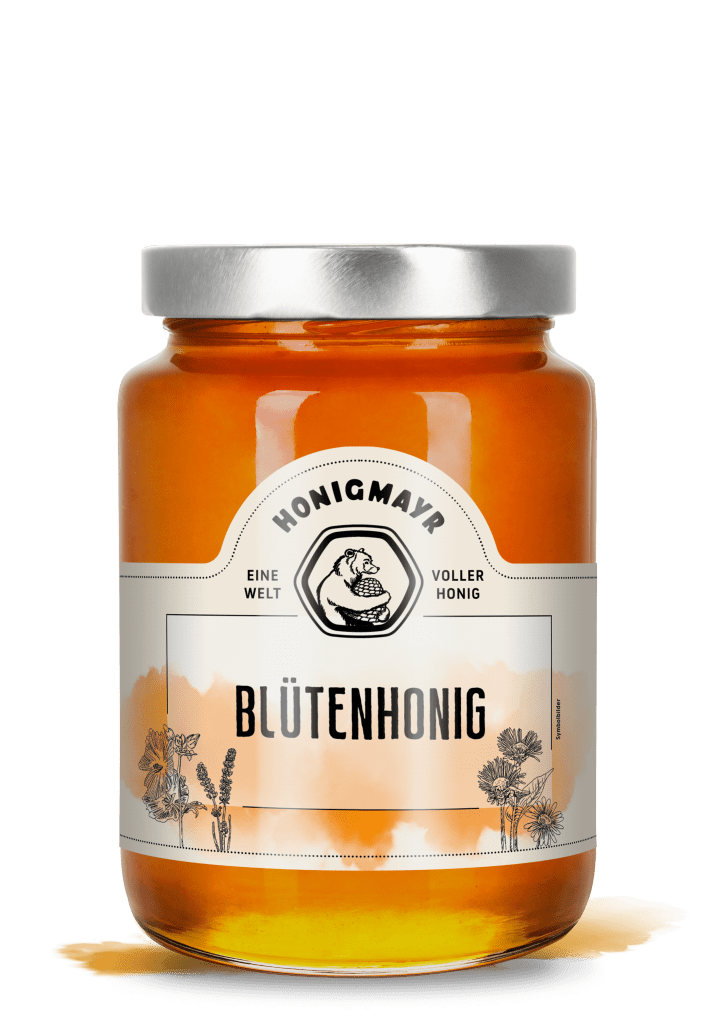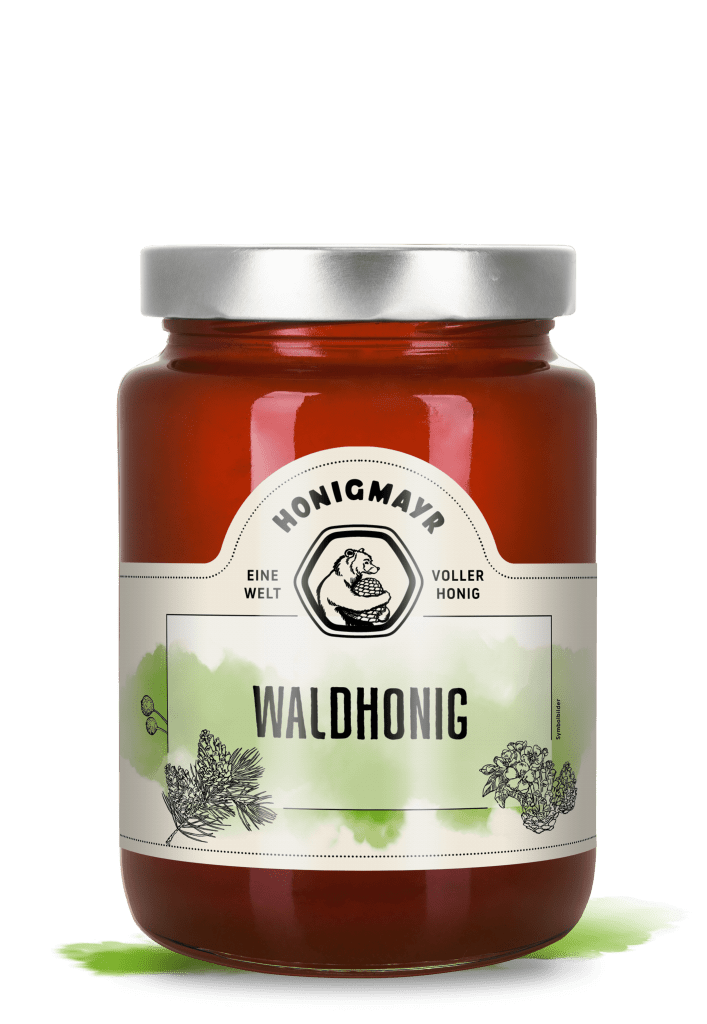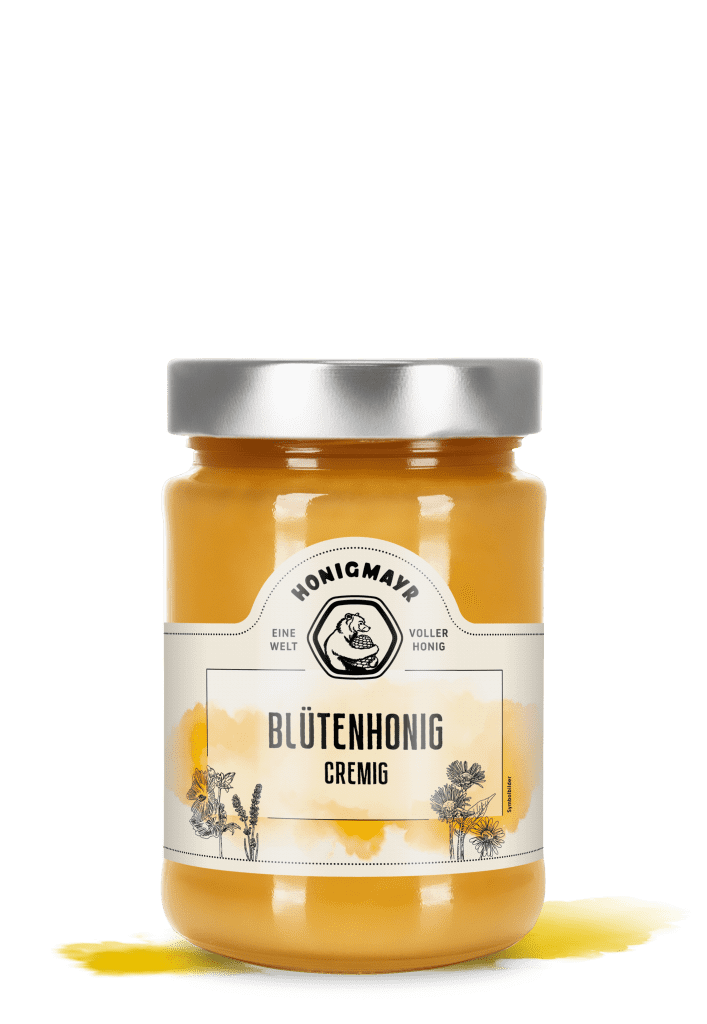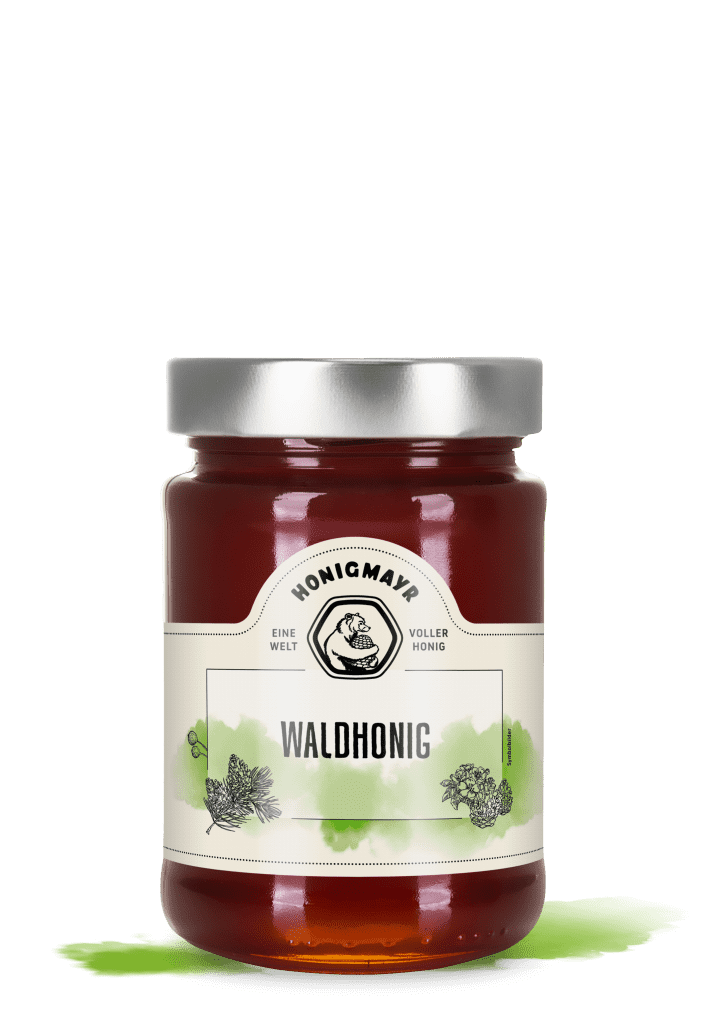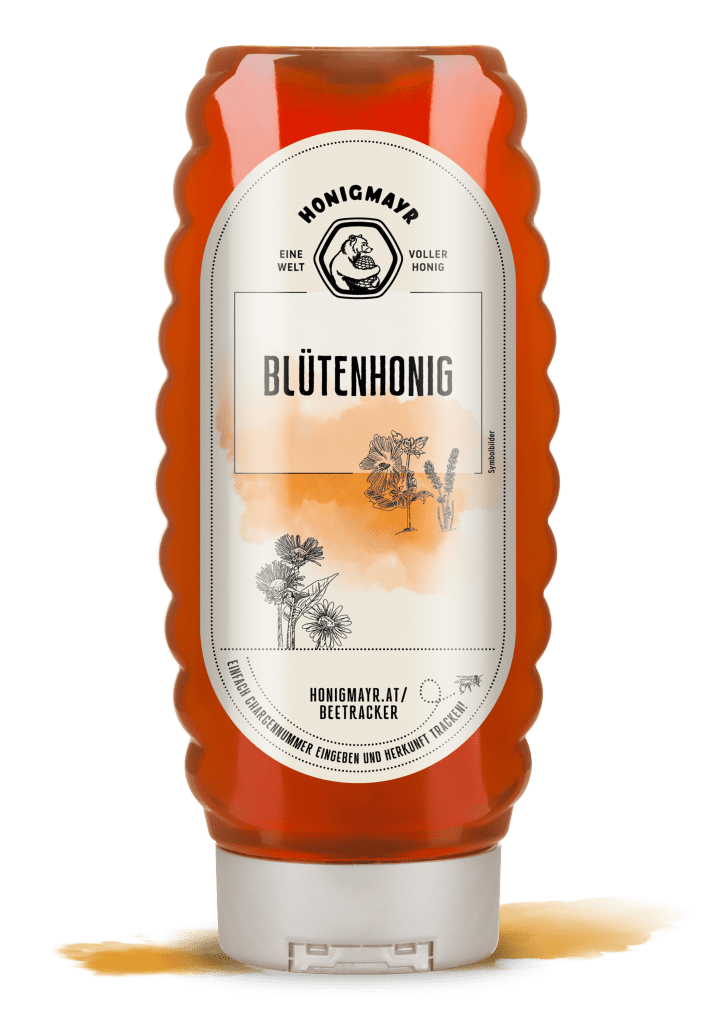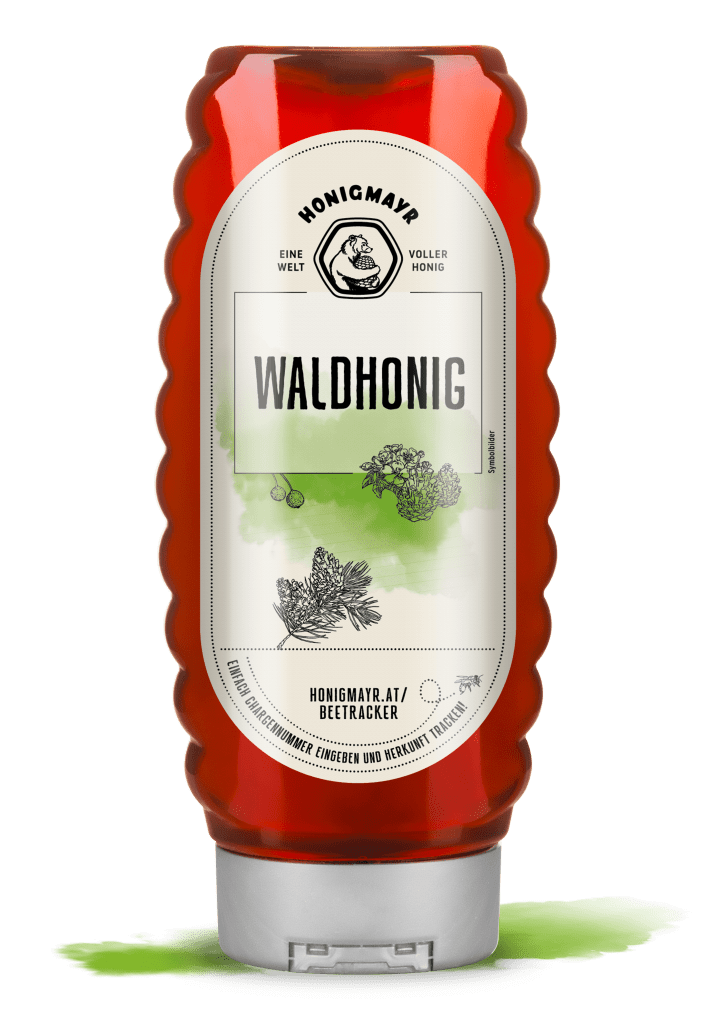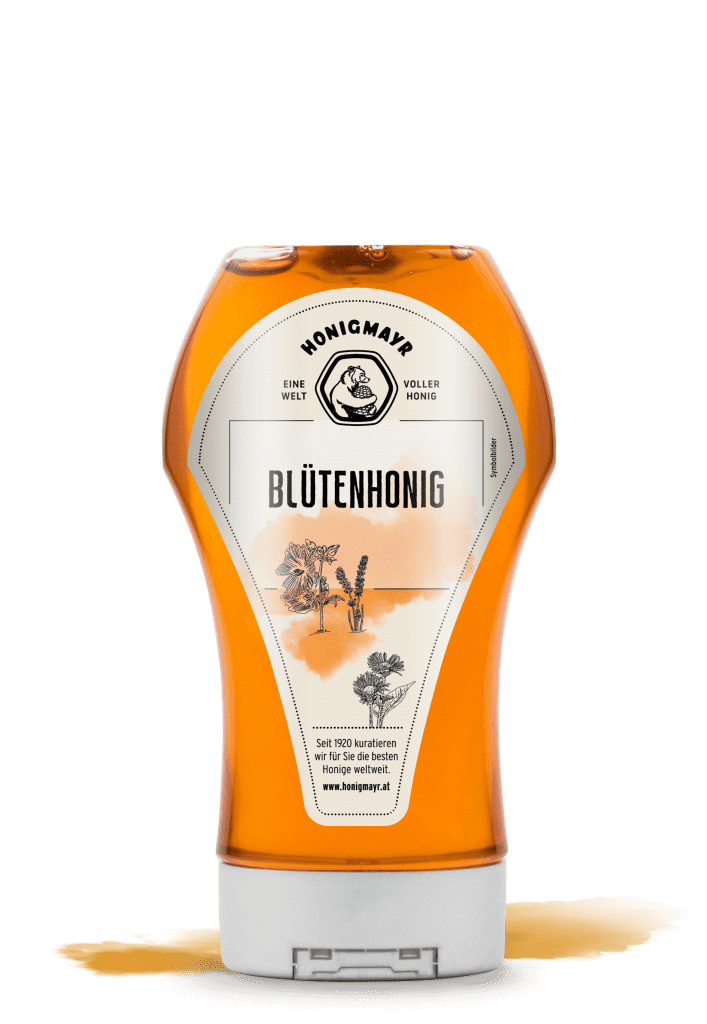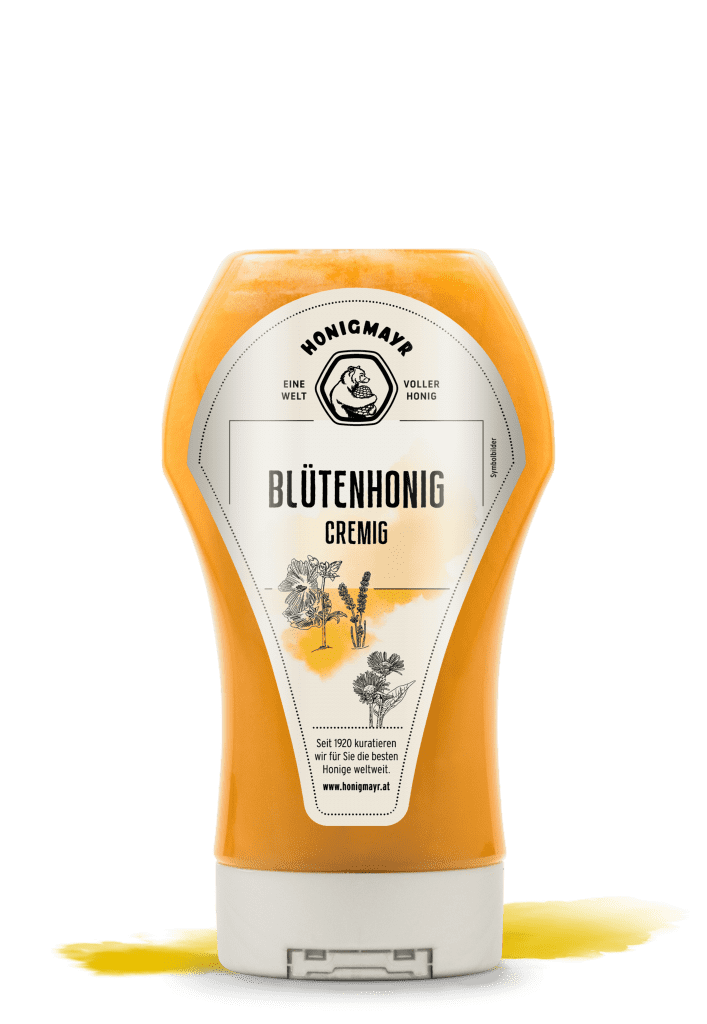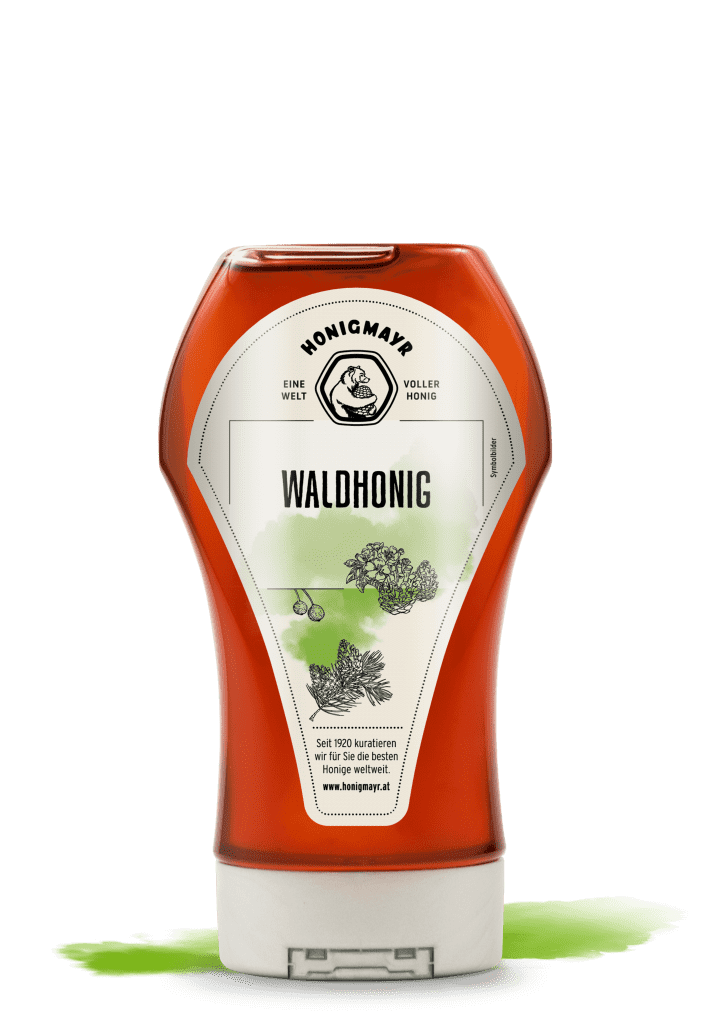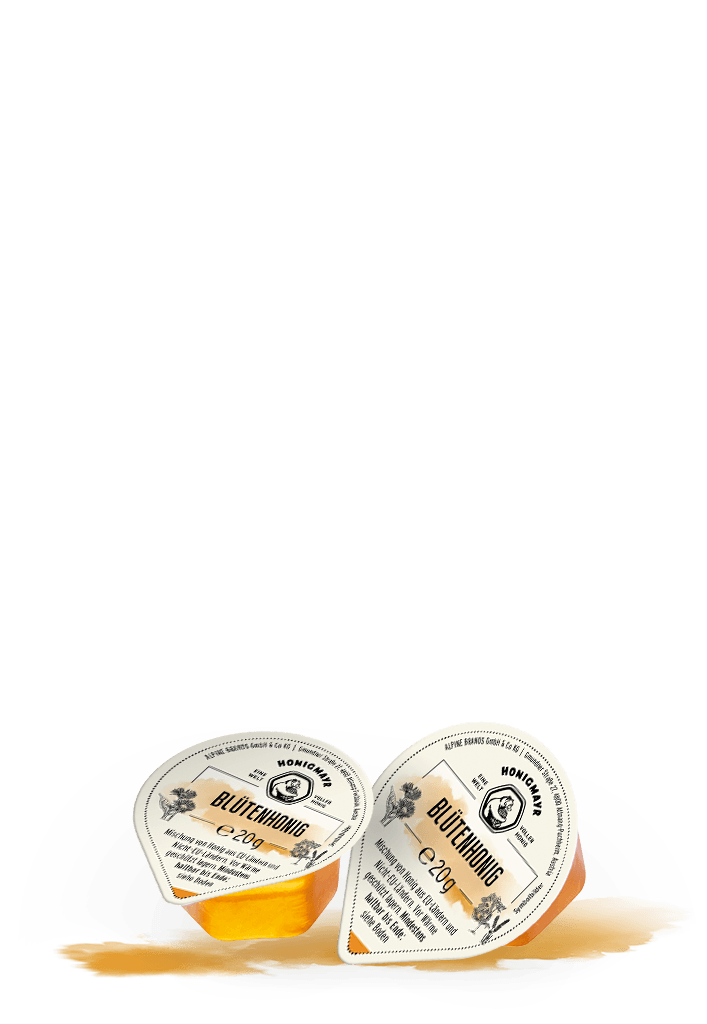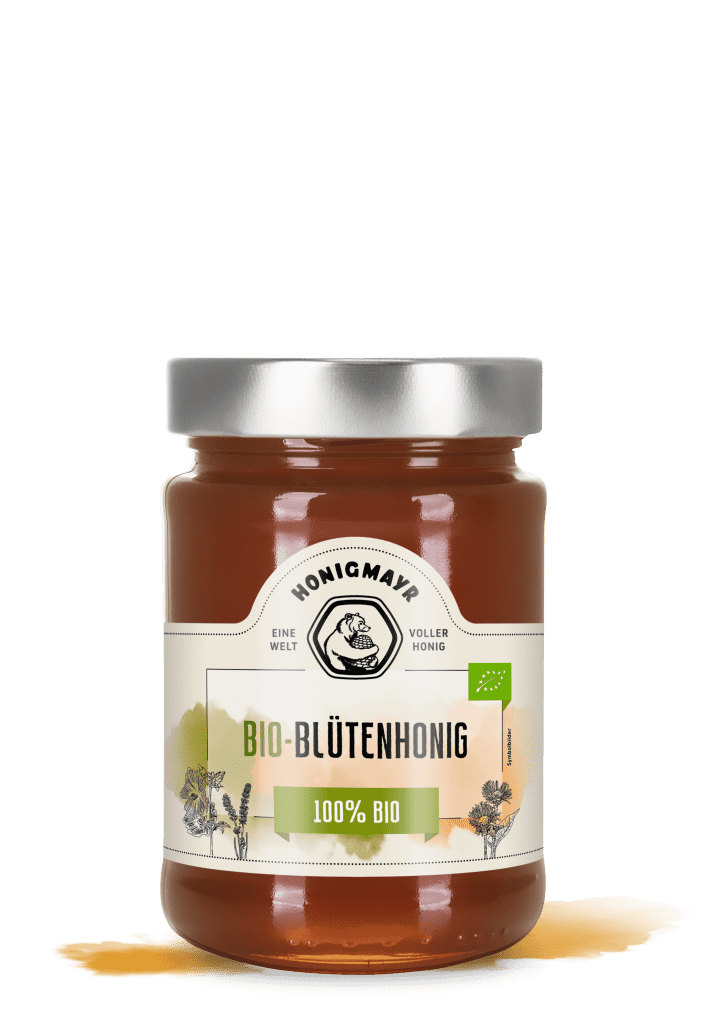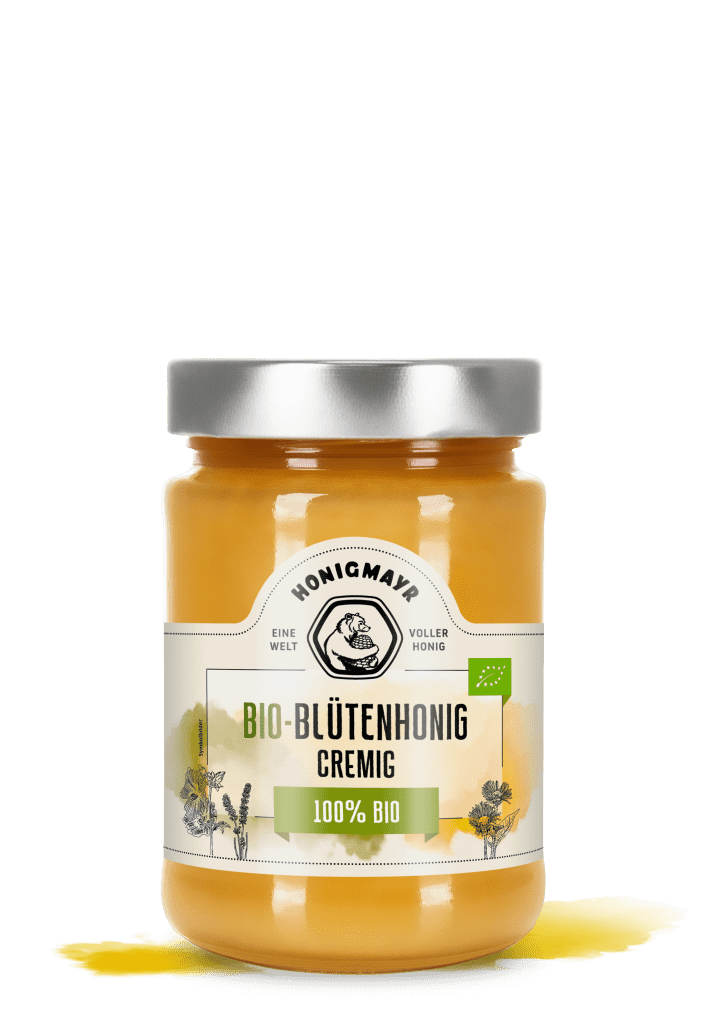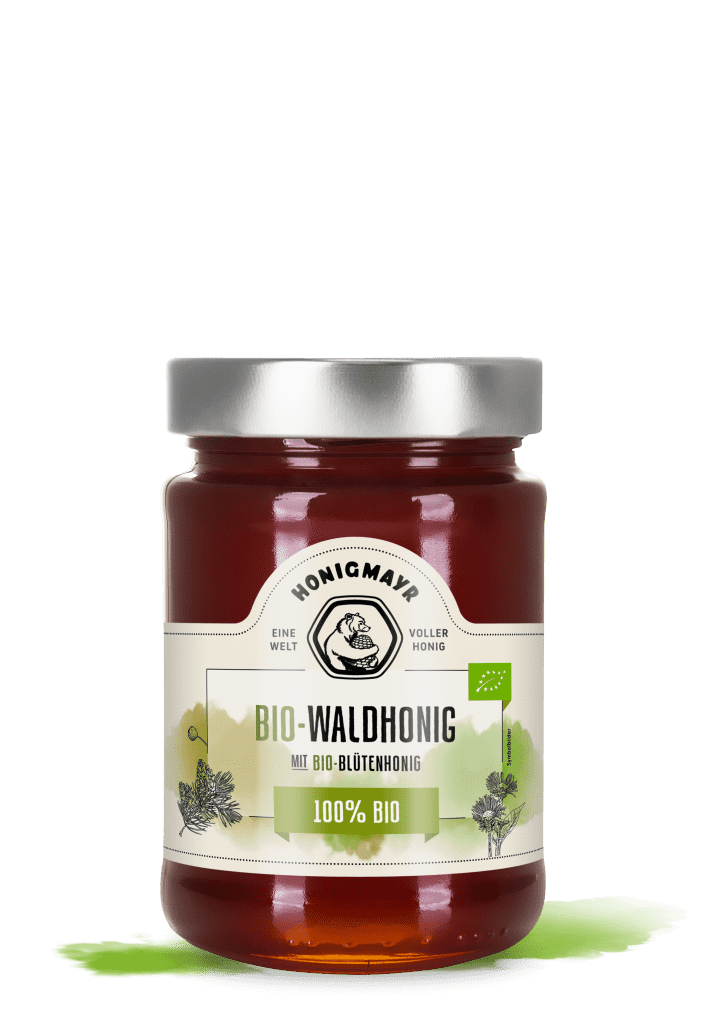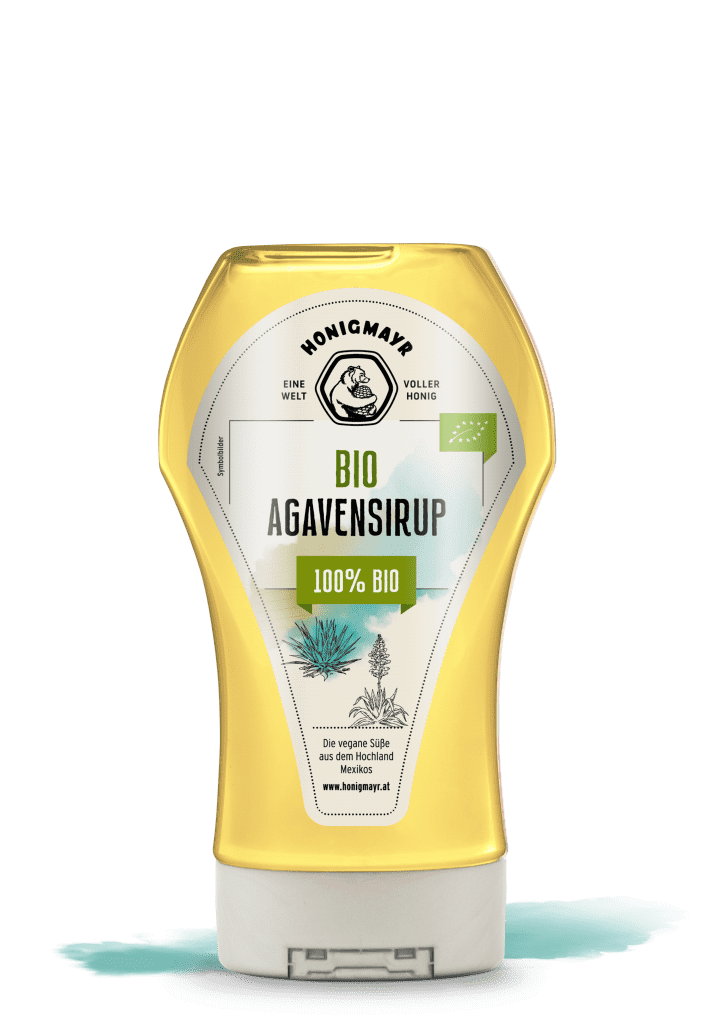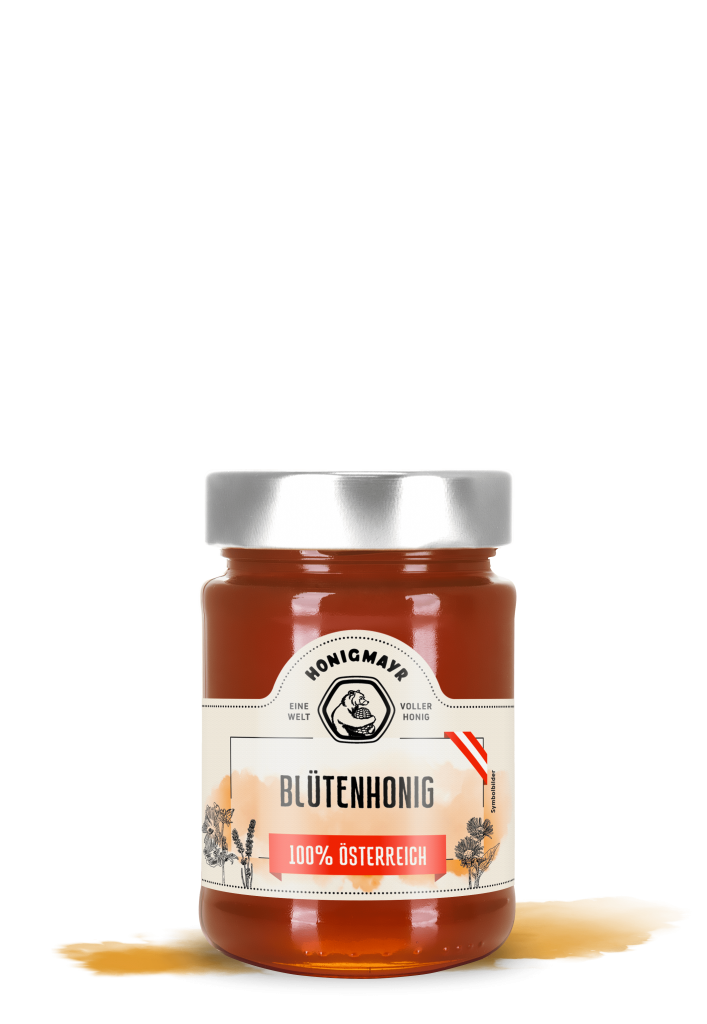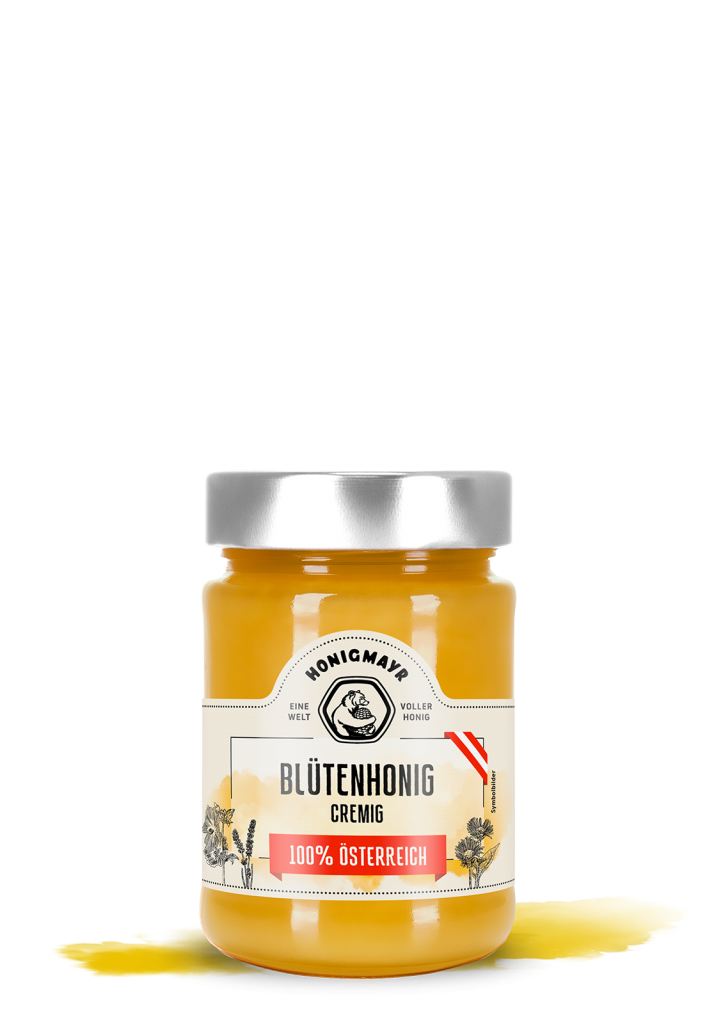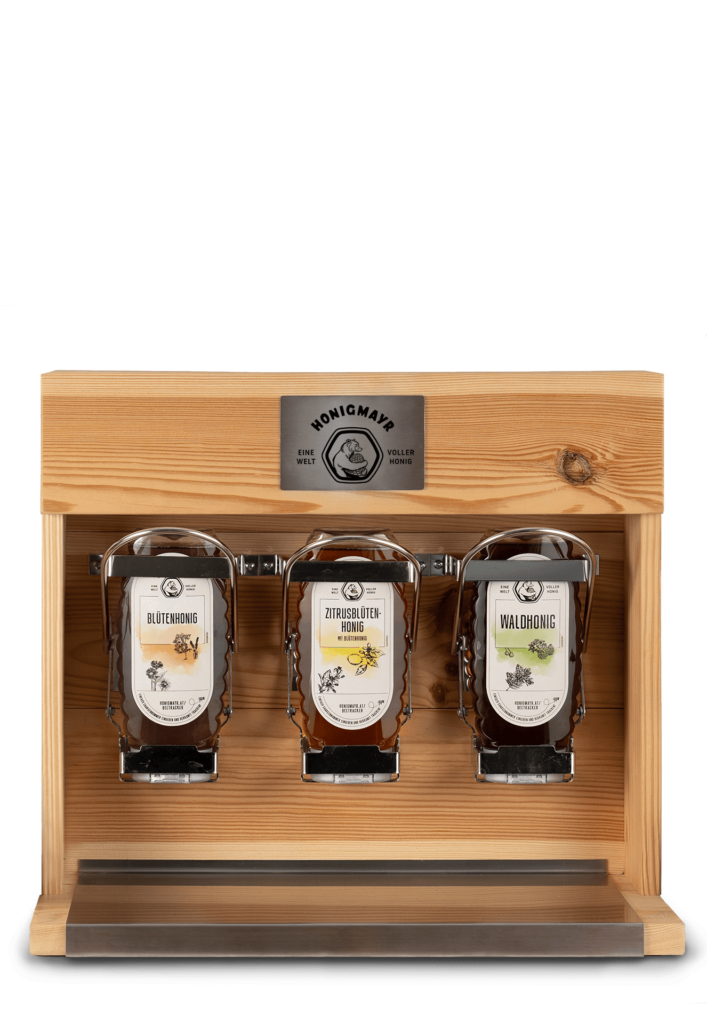Your questions answered!
Honey, the natural superfood, that is the subject of numerous myths and stories. We debunk some of the persistent rumours, give tips on how to store honey, provide information about how long it keeps for and answer the most frequently asked questions about the “liquid gold”.
As a rule, every honey crystallises. However, how quickly honey crystallises depends on its composition. Honeys with a higher proportion of fructose (such as acacia honey) remain runny for longer. If glucose is the predominant sugar in it, the honey crystallises earlier (e.g. rapeseed honey). However, the quality is not affected in any way by setting or crystallisation.
Crystallised honey can be made runny again by gently warming it in a water bath at a temperature not exceeding 40° Celsius for two to three hours. Don’t forget to stir from time to time! How should honey be stored properly?
As a general rule, honey should be stored in a cool and dark place away from direct sunlight. Honey is highly sensitive to heat. Its valuable contents are destroyed at temperatures of over 40° Celsius. For that reason, honey should always be stored at room temperature.
Moreover, honey should always be kept in tightly sealed containers, otherwise it attracts moisture from the air, which may result in fermentation. To prevent honey from absorbing any external smells (e.g. from coffee or cheese), it should be kept in aroma-proof containers.
Consumption of bee honey is not suitable for babies since honey is not heated and is therefore classed as a raw foodstuff. Spores of a bacteria called Clostridium botulinum may be present in honey, resulting in a type of food poisoning known as infant botulism in very rare cases. However, any spores in honey are not harmful to infants over a year old or to adults.
Honey is produced by bees and is therefore classed as an animal product. That is why vegans or people wishing to avoid animal products often look for plant-based alternatives to honey. From sugar beet syrup and dandelion syrup though to honey alternatives made from apple juice concentrate enriched with flower pollen, there are numerous alternatives that approximate the taste of real honey to a lesser or greater extent.
As a vegan alternative from the Honigmayr range, we recommend our agave syrup (place link), which is of premium organic quality.
Organic honey comes exclusively from certified organic bee-keepers who are committed to using organic methods. The main difference is that organic bee-keeping uses more bee-friendly practices than conventional bee-keeping. The sites where the hives are positioned, the feed and the materials used are strictly regulated. For example, only hives made from wood or natural materials are allowed. Only certain agents are permitted to be used to combat disease. The bee wax used must be absolutely clean and free from deposits.
Organic bee-keepers have to document their methods extensively and are subject to regular, rigorous inspections by the certification bodies.
Honey is one of the most tightly regulated and controlled foodstuffs. The EU’s Honey Directive prescribes that no other substances, such as sugar, are permitted to be added to or removed from honey. Both domestic and imported honey is subject to strict controls in that regard. Honey is therefore always a 100% pure, natural product.
The misconception that sugar is added to honey is very persistent. It may derive from the fact that bee-keepers feed bees a sugar solution during the winter months when no natural food sources are available. However, that is solely used to feed the bees and does not end up in the honey.
By nature, honey largely consists of sugar, chiefly fructose and glucose. The ratio of the sugar types varies depending on the kind of honey. However, it is definitely natural sugar and all honey available in the EU is free from added sugar.
In principle, honey cannot go bad. The high sugar content in honey acts as a preservative by binding the water in honey. Without freely available water, micro-organisms lack the conditions to cause spoilage. If stored correctly, honey keeps almost indefinitely in principle. For this reason, an expired best-before date should not pose an obstacle to eating the honey. However, if too many foreign materials, such as breadcrumbs and butter residues, end up in the honey, they may go bad or mouldy and make the honey inedible. The same applies if moisture gets inside the honey jar. Tightly sealed, protected from sunlight and stored in a dry place, honey can keep for years without any decline in quality.
The different consistency of the various honey varieties largely depends on their composition. Honey mainly consists of fructose and glucose. The ratio of the sugar types varies depending on the kind of honey. As a result, the consistency of the honey also varies. The higher the proportion of glucose, the thicker the honey. However, the natural ratio of water in honey and the storage temperature also affect the consistency of the product. If honey is stored in a warm environment, it is considerably more runny than if stored in a cool environment.
One simple reason for using honey varieties from across the world is that honey consumption in Austria is significantly higher than the quantity of pure Austrian honey available. Domestic honey production covers less than 50% of demand in Austria. In 2018, some 11,000 tonnes of honey were consumed in Austria. During the same period, domestic bee-keepers produced 5,000 tonnes of the “liquid gold”, 2,000 tonnes of which were exported. That means Austrians consume far more honey than is available. An annual deficit of around 8,000 tonnes has to be compensated to meet demand among the population (Source: Austrian Statistical Office).
Honigmayr has therefore placed great importance for years on maintaining and developing a well-functioning international network of bee-keepers. In its rigorous selection of areas from which it imports honey, Honigmayr pays particular attention to diverse landscapes with fertile vegetation to guarantee the highest-quality honey. Honigmayr honey therefore comes not only from Austria, but also from other countries both within and outside the EU, such as Mexico, Spain, Italy, Moldova, Romania, Chile, Cuba and Argentina. Compared to Central Europe, countries in warmer regions have the great advantage that – thanks to large, pristine areas, a wide variety of nectar-supplying plants and a year-round harvest – they produce a vast surplus, which is then exported across the world.
We believe the quality of honey products from abroad has wrongly been discredited in some cases. From our decades of experience, we know for a fact that bee-keepers in our partner countries harvest high-quality honey on a par with the honey harvested by their fellow bee-keepers in Austria and the rest of Europe. With our strong commitment to quality assurance, we ensure that only the best-quality honeys, irrespective of origin, are processed for our customers. The EU’s Honey Directive is designed to establish uniform requirements for honey production. Honigmayr’s strict quality assurance ensures compliance with the EU’s Honey Directive. Moreover, honey is one of the few foodstuffs that is governed by a separate EU directive. Unlike with fruit spreads, for example, the origin of honey has to be indicated. As a result, honey is one of the most transparent foodstuffs on the Austrian market. Last but not least, the market mechanism of supply and demand also plays a role. Imported honey is sometimes cheaper because the exporting countries, especially those outside the EU, produce more honey than they need for their domestic market. That enables them to offer lower prices. However, besides the outstanding quality, we are also guided by a sense of social responsibility in our decision to source honey from outside the EU. In Mexico alone over 40,000 families make a living from apiculture or bee-keeping. The situation is similar in other countries such as Guatemala, El Salvador, Chile, Argentina and Uruguay. Honey has been imported to Europe from there for over 30 years. A whole economic sector would be ruined by halting or limiting imports of honey, which would further exacerbate poverty in those countries.
Questions, requests
and suggestions?
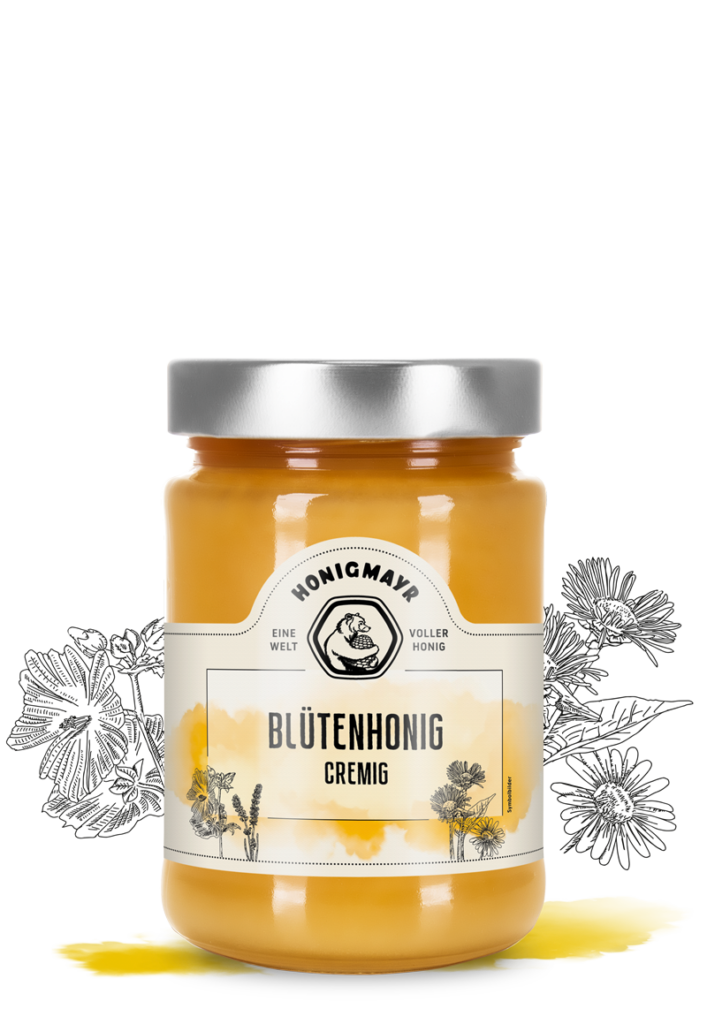
Do you have any questions about our honey-making process? Do you have any suggestions concerning the Honigmayr honey varieties or are you interested in a factory tour? Are you looking for the right contact person for your query? If so, then send us a message and get in touch with your desired contact person. We look forward to hearing from you!
